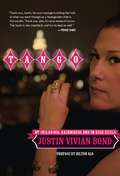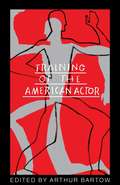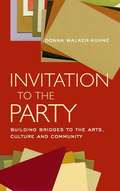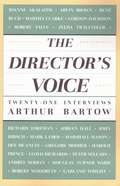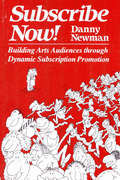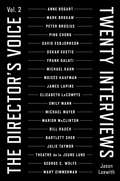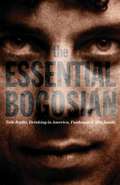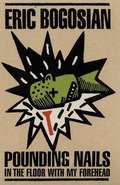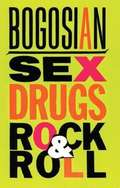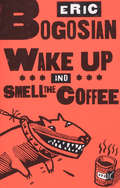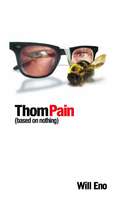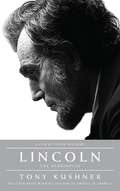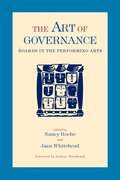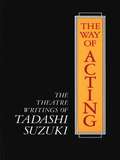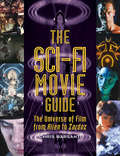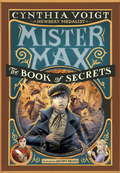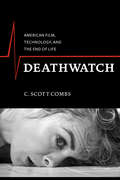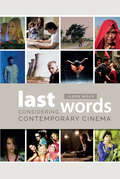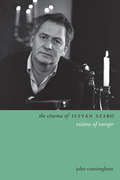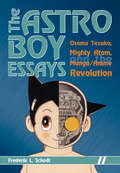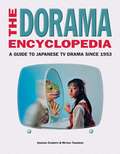- Table View
- List View
Tango: My Childhood, Backwards and in High Heels
by Justin Vivian BondWINNER OF A 2012 LAMBDA LITERARY AWARD"Like Bond, the memoir is droll, pensive and filled with zingers teetering between funny and ferocious."-The New York Times"Bond's fabulosity is matched by a trenchant wit, and [V's] over-the-top stories are smartly edged with politics, sexual or otherwise."-The New York TimesRecently hailed as "the greatest cabaret artist of [V's] generation" in The New Yorker, Mx. Justin Vivian Bond makes a brilliant literary debut with this staggeringly candid and hilarious novella-length memoir.With a recent diagnosis of attention deficit disorder, and news that V's first lover from childhood has been imprisoned for impersonating an undercover police officer, Bond recalls in vivid detail coming of age as a trans kid. Always haunted by the knowledge of being "different," Bond was further confused when the bully next door wanted to meet secretly. Their trysts went on for years, and made Bond acutely aware of sexual power and vulnerability. With inimitable style, Bond raises issues about LGBTQ adolescence, homophobia, parenting, and sexuality, while being utterly entertaining.Singer, songwriter, and Tony-nominated performance artist Mx. Justin Vivian Bond is an Obie, Bessie, and Ethyl Eichelberger Award winner. As one half of the performance duo Kiki and Herb, Bond has toured the world, headlining at Carnegie Hall, the Sydney Opera House, and London's Queen Elizabeth Hall, and starring in a Tony nominated run on Broadway, Kiki and Herb Alive on Broadway. Film credits include a role in John Cameron Mitchell's feature Shortbus. Bond has recently released two records, Dendrophile, and Silver Wells.
Training of the American Actor
by Arthur BartowSuccessful acting must reflect a society's current beliefs. The men and women who developed each new technique were convinced that previous methods were not equal to the full challenges of their time and place, and the techniques in this book have been adapted to current needs in order to continue to be successful methods for training actors. The actor's journey is an individual one, and the actor seeks a form, or a variety of forms, of training that will assist in unlocking his own creative gifts of expression.--from the introductionThe first comprehensive survey and study of the major techniques developed by and for the American actor over the past 60 years. Each of the 10 disciplines included is described in detail by one of today's foremost practitioners.Presented in this volume are:* Lee Strasberg's Method by Anna Strasberg, Lee's former student, widow, and current director of The Lee Strasberg Theatre Institute * Stella Adler Technique by Tom Oppenheim, Stella's grandson and artistic director of the Stella Adler Institute in New York * Sanford Meisner Technique by Victoria Hart, director of the Meisner Extension at New York University * Michael Chekhov Technique and The Mask by Per Brahe, a Danish teacher inspired by Balinese dance and introduced to the Chekhov technique in Russia * Uta Hagen Technique by Carol Rosenfeld, who taught under Hagen's tutelage at the Herbert Berghof (HB) Studio * Physical Acting Inspired by Grotowski by Stephen Wangh, who studied with Jerzy Grotowski himself * The Viewpoints by Mary Overlie, the creator of Viewpoints theory * Practical Aesthetics by Robert Bella of the David Mamet-inspired Atlantic Theatre Company school * Interdisciplinary Training by Fritz Ertl, who teaches at the Playwrights Horizons Theatre School * Neoclassical Training by Louis Scheeder, director of the Classical Studio of New York UniversityArthur Bartow is the artistic director of the Department of Drama at New York University's Tisch School of the Arts. A former associate director of Theatre Communications Group, he is the author of the landmark book The Director's Voice.
Invitation to the Party
by Donna Walker-Kuhne George C. WolfeAcknowledged as the nation's foremost expert on audience development involving America's growing multicultural population by the Arts and Business Council, Donna Walker-Kuhne has now written the first book describing her strategies and methods to engage diverse communities as participants for arts and culture. By offering strategic collaborations and efforts to develop and sustain nontraditional audiences, this book will directly impact the stability and future of America's cultural and artistic landscape. Donna Walker-Kuhne has spent the last 20 years developing and refining these principles with such success as both the Broadway and national touring productions of Bring in 'Da Noise, Bring in 'Da Funk, as well as transforming the audiences at one of the U.S.'s most important and visible arts institutions, New York's Public Theater. This book is a practical and inspirational guide on ways to invite, engage and partner with culturally diverse communities, and how to enfranchise those communities into the fabric of arts and culture in the United States.Donna Walker-Kuhne is the president of Walker International Communications Group. From 1993 to 2002, she served as the marketing director for the Public Theater in New York, where she originated a range of audience-development activities for children, students and adults throughout New York City. Ms. Walker-Kuhne is an Adjunct Professor in marketing the arts at Fordham University, Brooklyn College and New York University. She was formerly marketing director for Dance Theatre of Harlem. Ms. Walker-Kuhne has given numerous workshops and presentations for arts groups throughout the U.S., including the Arts and Business Council, League of American Theaters and Producers, the Department of Cultural Affairs, and the National Endowment for Arts to name a few. She has been nominated for the Ford Foundation's 2001 Leadership for a Changing World Fellowship.
The Director's Voice
by Arthur BartowForemost stage directors describe their working process: JoAnne Akalaitis, Arvin Brown, René Buch, Martha Clarke, Gordon Davidson, Robert Falls, Zelda Fichandler, Richard Foreman, Adrian Hall, John Hirsch, Mark Lamos, Marshall W. Mason, Des McAnuff, Gregory Mosher, Harold S. Prince, Lloyd Richards, Peter Sellars, Andrei Serban, Douglas Turner Ward, Robert Woodruff, and Garland Wright.
Subscribe Now!
by Danny Newman"Buy it, borrow it, steal it, but get your hands on it! If you follow Danny's advice on how to sell tickets, you won't have an unsold seat in the house all season long!"--Ralph Black, American Symphony League
The Director's Voice, Vol. 2
by Jason Loewith"Directors today are equipped with a larger toolbox than their forerunners, standing on their shoulders as well as those of pioneers in non-Western theater, experimental visual art, community-based theater, and the ever-evolving commercial theater scene."-- Jason LoewithThis second volume presents a cross-section of the most diverse and dynamic stage directors defining today's American theater, in conversation with director/producer Jason Loewith. A follow-up to the immensely popular first volume, which has sold over eighteen thousand copies, much has changed in the twenty years since The Director's Voice debuted. "The nonprofit model has been turned on its head," Loewith notes. "Institution-building is out for these directors; creating a distinctive voice from a multiplicity of influences is in." Together, these directors sketch a compelling portrait of the art form in the new century.Interviews include: Anne Bogart, Mark Brokaw, Peter Brosius, Ping Chong, David Esbjornson, Oskar Eustis, Frank Galati, Michael Kahn, Moisés Kaufman, James Lapine, Elizabeth LeCompte, Emily Mann, Michael Mayer, Marion McClinton, Bill Rauch, Bartlett Sher, Julie Taymor, Theatre de la Jeune Lune (Barbra Berlovitz, Steven Epps, Vincent Gracieux, Robert Rosen, and Dominique Serrand), George C. Wolfe, and Mary Zimmerman.Jason Loewith is a producer, director, and writer. He has served since 2002 as artistic director of Chicago's Next Theatre Company, where he conceived, co-wrote, and produced Adding Machine: A Musical, which had an award-winning run off-Broadway.
The Essential Bogosian
by Eric Bogosian"What Lenny Bruce was to the 1950s, Bob Dylan to the 1960s, Woody Allen to the 1970s--that's what Eric Bogosian is to this frightening moment of drift in our history."--Frank Rich, The New York Times
Pounding Nails in the Floor with My Forehead
by Eric BogosianIn his brashest solo show, performer and playwright Eric Bogosian once again aims his searing social commentary at the contemporary urban and suburban scene. "Never miss Bogosian, because the sharp-tongued, sharp-shooting Bogosian never misses."--Clive Barnes, New York Post
Sex, Drugs, Rock & Roll
by Eric BogosianBogosian explores the dark underbelly of the American dream with blistering prose, trenchant social criticism and breathtakingly accurate characterizations of an astonishing range of his fellow citizens.
Wake Up and Smell the Coffee
by Eric Bogosian100% pure high octane Bogosian.Bogosian's latest and greatest monologue."His wit is as venomous as ever, his material even more devastating and polished than before."--New York Daily News"Bogosian hasn't simply crossed the line of good taste, he has snorted it."--The Daily TexanWake Up is Bogosian's meditation on making it to the top of the ladder, on falling off the ladder and on the exhilarating thrill of the ultimate crash and burn. Once again the author offers a blisteringly funny and dead-on take of the chaos and alienation of post-modern life in the U. S. of the year 2000. As Michael Feingold so ably offered in his Village Voice review--"Bogosian is there, watching out for the downtrodden, ridiculing the arrogant rich, defending battered wives and neo-hippie hitchhikers and never losing sight of his own capacity for being classed among the batters and bullies. But his 95 minutes is as fast and exciting a read as the theatre community offers. In our time, the stage has almost been what classical thinkers saw it as, a medium for criticizing life. How perfect that a solo performer should rediscover its roots, by choosing his own life as the object of his criticism."Eric Bogosian, born in Woburn, Massachusetts, has performed his plays and monologues at venues nationwide. Winner of Obie and Drama Desk Awards, he has made four films of his work, most notably Talk Radio and Suburbia. His novel Mall was recently published by Simon and Schuster.
Thom Pain (based on nothing) [Trade Edition]
by Will Eno"Astonishing in its impact. . . One of the treasured nights in the theatre that can leave you both breathless with exhilaration and, depending on your sensitivity to meditations on the bleak and beautiful mysteries of human experience, in a puddle of tears . . . Thom Pain is at bottom a surreal meditation on the empty promises life makes, the way experience never lives up to the weird and awesome fact of being. But it is also, in its odd, bewitching beauty, an affirmation of life's worth."--Charles Isherwood, The New York Times"Eno has emerged as one of the most original young playwrights on the scene. He is one of the few writers who can convert discomfort and outright agony into such pleasure."--David Cote, TimeOut New York"Will Eno is one of the finest younger playwrights I've come across in a number of years. His work is inventive, disciplined and, at the same time, wild and evocative."--Edward AlbeeWhen Will Eno's one-person play Thom Pain opened in New York in February 2005, it became something rare--an unqualified hit, which soon extended through July. Before that, the play was a critical success in London and received the coveted Fringe First Award at the Edinburgh Festival. Dubbed "stand-up existentialism" by The New York Times, it is lyrical and deadpan, both sardonic and sincere. It is Thom Pain--in the camouflage of the common man--fumbling with his heart, squinting into the light.Will Eno lives in Brooklyn, New York. His plays include The Flu Season, Tragedy: a tragedy, King: a problem play, and Intermission. His plays have been produced in London by the Gate Theatre and BBC Radio, and in the United States by Rude Mechanicals and Naked Angels. His play The Flu Season recently won the Oppenheimer Award, presented by NY Newsday for the previous year's best debut production in New York by an American playwright.
Lincoln
by Tony Kushner Doris Kearns GoodwinA decade-long collaboration between three-time Academy Award® winner Steven Spielberg and Pulitzer Prize winner Tony Kushner, Lincoln is a revealing drama that focuses on the 16th President's tumultuous final months in office. Containing eight pages of color photos from the film and inspired by Doris Kearns Goodwin's critically acclaimed Team of Rivals, Lincoln is now a major motion picture.
The Art of Governance
by Nancy Roche Jaan WhiteheadThe Art of Governance is an essential guide for trustees in the performing arts and for the artists, managers, and community leaders who work with them. This book provides the larger context in which trustees govern--the art, artists, history, institutions, and national policies of the performing arts--and also explores more practical issues, such as board development, planning, finance, and fundraising. A wide range of distinguished artists, trustees, managers, and consultants have contributed articles, covering everything from "The Art of Theater" to "Understanding Financial Statements." An invaluable tool for building an enlightened and inspired board, this resource above all recognizes the need of trustees in the performing arts to find a balance between the uncertainty of artistic creativity and the need for fiscal stability.Editors Nancy Roche and Jaan Whitehead have served on the boards and staff of numerous theater organizations.Nancy Roche has been a trustee of CENTER-STAGE in Baltimore since 1987, serving as president of the board for seven years and as interim managing director for one year. She has been a consultant on governance for the National Arts Stabilization (now National Arts Strategies), a councilor of the Maryland State Arts Commission from 1992-1999, and has twice served as lay panelist for the NEA. In the summer of 2000, she participated as a theater trustee in the National Critics' Institute at the Eugene O'Neill Theater Center in Waterford, Connecticut, returning in the following summer as a founding member of their week-long Trustees Program. She is a founding member of the National Council for the American Theatre and serves as a trustee and treasurer of the board of Theatre Communications Group. In addition, she serves on the boards of the Roland Park Country School, the Institute for Christian-Jewish Studies, and the Baltimore School for the Arts. She is a graduate of Dominican University and received an MA in teaching and an LLA, both from The Johns Hopkins University.Jaan Whitehead currently chairs the board of the SITI Company, an ensemble theater in New York led by Anne Bogart. She has served on the boards of The Acting Company, Arena Stage, Living Stage, and The Whole Theatre Company, where her particular interests have been board development and institutional change. She has also been a trustee of Theatre Communications Group and the National Cultural Alliance, an arts advocacy group in Washington, and is a founding member of the National Council for the American Theatre. In addition to her work as a trustee, she has been executive director of Theatre for a New Audience in New York and Development Director of CENTERSTAGE in Baltimore.Ms. Whitehead graduated from Wellesley College, holds and MA in economics from the University of Michigan, and, early in her career, works as an economist for private industry and the Federal Reserve Board. She received her PhD in political theory fro Princeton in 1988. She taught at Georgetown University for several years but, as her involvement in theater deepened, she made the arts her main work while retaining her interests in economic and political theory. Drawing on this background, she has recently been writing a series of essays on the challenges facing the arts in a commercial society.
The Way of Acting
by J. Thomas Rimer Tadashi SuzukiThe most influential contemporary theatre director in Japan, Suzuki provides a thorough and accesible formulation of his ideas and beliefs, and insights into his training methods. Features his compelling adaptation of Clytemnestra--finding an astonishing parallel between ancient Greek and modern Japanese society, Suzuki melds traditional and avant-garde techinques to shed new light on this primal tale.
The Sci-Fi Movie Guide
by Chris BarsantiOnce upon a time, science fiction was only in the future. It was the stuff of drive-ins and cheap double-bills. Then, with the ever-increasing rush of new, society-altering technologies, science fiction pushed its way to the present, and it busted out of the genre ghetto of science fiction and barged its way into the mainstream. What used to be mere fantasy (trips to the moon? Wristwatch radios? Supercomputers capable of learning?) are now everyday reality.Whether nostalgic for the future or fast-forwarding to the present, The Sci-Fi Movie Guide: The Universe of Film from Alien to Zardoz covers the broad and widening range of science-fiction movies. From the trashy to the epic, from the classics to today's blockbusters, this cinefile's guidebook reviews nearly 1,000 of the biggest, baddest, and brightest from every age and genre of cinematic and TV science fiction. You'll find more than just Star Wars, Star Trek, and Transformers, with reviews on many overlooked and under-appreciated gems and genres, such as Monsters! Pacific Rim, Godzilla, The Thing, Creature from the Black Lagoon Superheroes: Thor, Iron Man, X-Men, The Amazing Spider-man, Superman Avant-garde masterpieces: Solaris, 2001, Brazil and much more!!
Mister Max: The Book of Secrets
by Iacopo Bruno Cynthia VoigtFrom Newbery Medalist Cynthia Voigt, Book II in the exciting adventures of Mister Max--12-year-old detective in disguise. In Mister Max: The Book of Lost Things, Max Starling proved that he is more than a detective, he's a Solutioneer. His reputation for problem-solving has been spreading--and now even the mayor wants his help. Someone is breaking windows and setting fires in the old city, but the shopkeepers won't say a word about the culprits. Why are they keeping these thugs' secrets? When the mayor begs for help, Max agrees to take the case, putting himself in grave danger. It's a race to catch up with the vandals before they catch him. Meanwhile, Max is protecting secrets of his own. His parents are still missing, and the cryptic messages he gets from them make it clear--it's going to be up to Max to rescue them. Can the Solutioneer handle cases this big?
Deathwatch: American Film, Technology, and the End of Life
by Combs C. ScottThe first study to unpack American cinema's long history of representing death
Last Words: Considering Contemporary Cinema
by Jason WoodLast Words features extensive interviews with contemporary directors and overviews of the directors' work
The Cinema of István Szabó: visions of Europe
by John CunninghamThe first English-language study of all Szabó's feature films and uses material from interviews with him and his collaborators
Deathwatch
by C. Scott CombsThe first study to unpack American cinema's long history of representing death
Last Words
by Jason WoodLast Words features extensive interviews with Christopher Nolan, Harmony Korine, Charlie Kaufmann, Nicolas Winding Refn, Wim Wenders, Michael Winterbottom, Christian Petzhold, and many others. Each interview is preceded by an overview of the director's work, and the volume's authoritative introductory essay explores the value of these directors and why they are rarely given an appropriate platform to discuss their craft.
The Cinema of István Szábo
by John CunninghamIstván Szabó is one of Hungary's most celebrated and best-known film directors, and the only Hungarian to have won an Academy Award for Best Foreign Language Film, for Mephisto (1981). In a career spanning over five decades Szabó has relentlessly examined the place of the individual in European history, particularly those caught up in the turbulent events of Central Europe and his own native Hungary. His protagonists struggle to find a place for themselves, some meaning in their lives, security and a sense of being, against a background of two world wars (Colonel Redl, Confidence), the Holocaust (Sunshine), the Hungarian Uprising and the Cold War (Father, 25 Fireman's Street, Taking Sides). This is the first English-language study of all his feature films and uses material from interviews with Szabó and his collaborators. Also included are chapters on his formative years, including his time at the famous Budapest Film Academy and the relationship of the state to the film industry in Hungary.
The Astro Boy Essays
by Frederik L. SchodtThe pioneering genius of Japan's "God of Comics," Osamu Tezuka (1928-89), is examined through his life's masterwork: Tetsuwan Atomu, also known as Mighty Atom or Astro Boy, a comic series featuring a cute little android who yearns to be more human. The history of Tetsuwan Atomu and Tezuka's role in it is a road map to understanding the development of new media in Japan and the United States. Topics include Tezuka's life, the art of animation, the connection between fantasy robots and technology, spin-offs, and Astro Boy's cultural impact.Frederik L. Schodt is a translator and author of numerous books about Japan, including Manga! Manga! and Dreamland Japan. He often served as Osamu Tezuka's English interpreter. In 2009 he was received the The Order of the Rising Sun, Gold Rays with Rosette for his contribution to the introduction and promotion of Japanese contemporary popular culture.
Anime Classics Zettai!
by Brian Camp Julie DavisFrom Stone Bridge Press, award-winning publishers of The Anime Encyclopedia, Hayao Miyazaki, and The Astro Boy Essays, comes a must-have guide to 100 essential Japanese animation films, TV series, and made-for-video series, from 1950s classics to the latest Cartoon Network hits.Looking for something specific? Eight unique icons make reviews easy to browse. From Akira to Naruto, Pokemon to Sailor Moon, here are summaries, style notes, rare facts, viewer-discretion guides, and critical comments on films that fans absolutely-zettai!-must see. Note: due to rights restrictions the ebook edition does not include images that are in the print edition.Julie Davis is the former editor-in-chief of Animerica: Anime & Manga Monthly. A writer and editor in San Francisco, Davis has translated manga for Viz (now Viz Media) and has contributed to Otaku USA and Manga: The Complete Guide.Brian Camp, program manager at CUNY-TV in New York, was a regular contributor to Animerica: Anime & Manga Monthly, and has taught a course on anime at New York's School of Visual Arts. Camp has also contributed to Animation World, Film Library Quarterly, the Motion Picture Guide, and the New York Daily News.
The Dorama Encyclopedia
by Jonathan Clements Motoko TamamuroDeeply connected to Japanese anime, manga, music, and film is . . . Japanese TV. This encyclopedic survey of the next cultural tsunami to hit America has over one thousand entries--including production data, synopses, and commentaries--on everything from rubber-monster shows to samurai drama, from crime to horror, unlocking an entire culture's pop history as never before. Over one hundred fifty of these shows have been broadcast on American TV, and more will follow, perhaps even such oddball fare as a Japanese "The Practice" and "Geisha Detective." Indexed, with resources for fans, couch potatoes, and researchers.Jonathan Clements is contributing editor to Newtype USA Magazine and coauthor of The Anime Encyclopedia.Motoko Tamamuro is an art historian and contributor to Manga Max.
